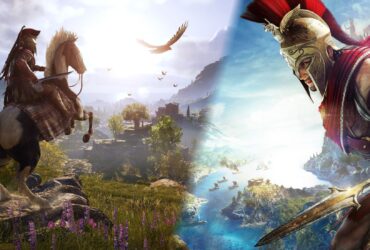GreedFall 2: The Dying World is moving at a measured pace in early access, with developer Spiders delaying some of its planned updates. While delays can frustrate eager players, this approach is ultimately a positive one. Early access exists to refine a game before its official launch, and moving with precision allows GreedFall 2:The Dying World to make a better first impression — something that can influence long-term player reception.
Unlike its predecessor, which leaned heavily on The Witcher 3-style design, GreedFall 2‘s gameplay is embracing a structure more akin to Dragon Age: Origins. This shift demands more meticulous planning. First impressions from early access suggest that the game may have a janky feel, a problem that could worsen if Spiders rushes through its development milestones. Instead, taking a slower, community-driven approach could pay off, especially considering the success of a similar strategy used by Larian Studios for Baldur’s Gate 3.

Related
Greedfall 2: The Dying World’s Early Access Roadmap Explained
GreedFall 2: The Dying World may be kicking things off with an early access period, but players can be confident that they will get plenty of content.
GreedFall 2’s Early Access Strategy is Key
Larian Studios’ early access model for Baldur’s Gate 3 offers a blueprint for success. By keeping its development open and engaging with the community, Larian refined its game into a critical and commercial hit. This method not only allowed for direct player feedback but also fostered a dedicated community.
Spiders has an opportunity to replicate this strategy. If GreedFall 2 can become a home for fans craving classic RPG experiences akin to Dragon Age: Origins, it could carve out a distinct niche. Recent Dragon Age games like The Veilguard have leaned toward action-RPG elements, leaving a gap in the market for traditional, party-based RPGs with tactical combat. By addressing player feedback and creating a shared development experience, GreedFall 2 can fill that gap.
For this to work, Spiders must be transparent and consistent with its communication. Players need to feel their input matters. Larian succeeded by offering frequent updates and showcasing how feedback directly influenced the game. If Spiders does the same, the delays won’t be seen as missteps but as part of a broader plan to improve the experience.
Why GreedFall 2 Needs a Patient Development Approach
Switching from The Witcher 3-style design to a Dragon Age: Origins framework is no small task. The former arguably relies on cinematic storytelling and expansive, open-world exploration, while the latter arguably emphasizes party management, tactical combat, and branching dialogue choices. This shift requires reworking core systems, like AI behavior, companion interactions, and tactical combat depth.
Early access reports already highlight areas that feel “janky,” which isn’t unusual for an unfinished RPG. However, if Spiders were to push ahead too quickly, these issues could become more entrenched. Larian’s approach with Baldur’s Gate 3 showed that players will wait for a polished product if they see progress and feel heard.
Slowing down development also ensures Spiders has time to focus on core mechanics. Tactical RPG systems require precision, especially if the studio wants to compete with modern RPGs. Poorly implemented AI routines or unpolished companion behavior could be dealbreakers. Careful iteration is essential, and it’s better to delay updates than risk cementing flaws into the final product.
If Spiders plays its cards right, early access could become a crucial part of GreedFall 2’s long-term success. By encouraging player participation, Spiders can create an environment where fans feel like co-developers. This isn’t just a matter of goodwill — it strengthens player loyalty and increases word-of-mouth promotion.
Larian’s approach with Baldur’s Gate 3 wasn’t just about bug fixes. It was about player-driven content refinement. When players suggested improvements, Larian implemented them, and the goodwill that resulted became one of Baldur’s Gate 3’s biggest selling points. If Spiders adopts this same method, GreedFall 2 could experience a similar groundswell of support.
The early access phase isn’t just a testing ground for systems — it’s a chance to build a community that will stick with the game after launch. If Spiders fosters a sense of collaboration and listens to feedback, it could establish GreedFall 2 as a must-play RPG. Players who feel invested in the development process are more likely to champion the game, helping it avoid the fate of being seen as “just another janky RPG.”













Leave a Reply